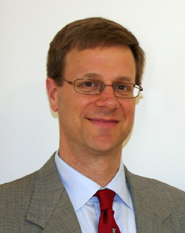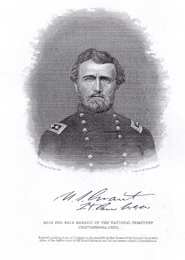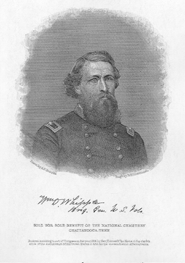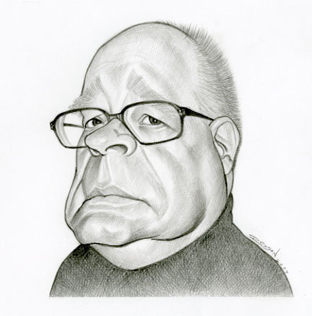RBS News Feed: 2009
Scholarship recipients share their RBS experience
[ 14 December 2009 ] In October 2009, RBS conducted a survey of its scholarship recipients in order to assess the outcomes of its scholarship program. Of the 153 students who received and claimed their awards between 2005–2009, 109 (or 71%) completed the survey, which was distributed online. The survey assessed changes in the recipients’ behaviors and attitudes after attending RBS.
Of the 109 students who completed the survey, 107 (or 98%) reported that RBS improved their ability to analyze book or print-related material. A smaller, but still significant number of recipients (88 or 74%) agreed that attending RBS improved their professional standing or situation (e.g. job prospects, job security, salary, and potential to remain in the field).
Students were most likely to include their RBS course on their resumes or curricula vitae or grant or fellowship applications, to recommend RBS to a colleague or a friend, and to share informally the information they learned at RBS with others. Other likely activities included attending a book or print-related lecture or exhibition; however, students were not as likely to attend a book or print fair or to give a lecture or presentation on a book or print-related topic. In general, students were not as enthusiastic about blogging or sharing their research online, publishing a scholarly article, joining a professional organization, or attending a professional conference.
In assessing RBS’s relevance to the scholarship recipients, 90 (or 84%) of 107 respondents reported that RBS was “very relevant” or “relevant” to their professional development and 93 (or 87%) found the course offerings “very relevant” or “relevant” to their professional development. Of the 107 respondents, 92 (or 86%) found their RBS coursework “very relevant” or “relevant” to their specific job or research interest.
Most respondents reported that the scholarship award (which covers tuition only) was “sufficient” to cover expenses for attending RBS (but not “somewhat sufficient” or “very sufficient”); however, some students commented in their prose responses to the survey that it was difficult for them to arrange for time away from work or school and to pay for their own travel and housing expenses. Roughly half (52, or 48.6%) of respondents received professional leave time attend RBS, while 21 (or 19%) had to take vacation or unpaid leave to attend. A little more than a third of students received comprehensive or partial institutional support for their travel and housing expenses, while the remainder (52% housing; 56% travel) personally covered their own expenses.
When asked to identify the most useful components of their experience at RBS, students found course materials (workbooks, handouts, &c.) and advance reading lists to be more useful than networking opportunities with other students and building relationship with faculty members. Surprisingly, RBS discovered that most students did not feel strongly about needing to connect with other scholarship recipients either during or after the RBS week.
We know it’s not always easy for students to arrange time away and cover travel and housing expenses and are looking for ways to provide more support in the future. We appreciate the sacrifices that students have had to make to attend courses and will continue to do our best to make sure the RBS experience measures up to the cost.
For more details about the scholarship program, see the RBS Scholarship page.
RBS founder Belanger profiled in The Chronicle of Higher Education
“We have a better chance of saving books if people see that they have a use than if they are simply religious objects.”
RBS founder Terry Belanger quoted in The Chronicle of Higher Education
(6 Dec 2009).
[ 7 December 2009 ] Last year, a local friend of Rare Book School funded an oral history project about the school to help mark the occasion of Terry Belanger’s retirement as Director. Andrew Witmer, an intern at UVa’s Institute for Public History, was engaged to interview Belanger and others about RBS’s history (and that of its original umbrella organization, the Book Arts Press). One of the spinoffs of the project was a long profile of Belanger by Witmer called “The Book Mechanic” that appears in the current issue of The Chronicle of Higher Education. Witmer is currently an Andrew W. Mellon Postdoctoral Fellow in the Humanities at the University of Pennsylvania. His article quotes Belanger extensively on subjects ranging from pretty books to the glamours of librarianship.
See the The Chronicle of Higher Education’s website for the complete article.
2010 course schedule posted, five new courses announced
[ 7 December 2009 ] The 2010 RBS course schedule is now available online. Five new courses join a line-up of tried-and-true favorites. David Pearson, Director of Libraries, Archives, and the Guildhall Art Gallery in London, will teach Provenance: Tracing Owners and Collections. In addition to his vast experience as a librarian, David is the author of several books, including Provenance Research in Book History (1995) and, most recently, Books as History: The Importance of Books Beyond Their Texts (2008). Heather Wolfe, Curator of Manuscripts at the Folger Shakespeare Library and a veteran teacher for the Folger Institute, will be guiding her students through English Paleography, 1500–1750. Law Books: History and Connoisseurship will be offered by Mike Widener, Rare Book Librarian at the Lillian Goldman Law Library, Yale University. Andrew Stauffer, Associate Professor of English at the University of Virginia and Director of NINES, will lead Digitizing the Historical Record. Another new course, Born Digital Materials: Theory and Practice, will be team taught by Matthew Kirschenbaum, Associate Professor of English at the University of Maryland and Associate Director of the Maryland Institute for Technology in the Humanities, and Naomi Nelson, Coordinator for Research Services in Emory University’s Manuscript, Archives, and Rare Book Library. Kirschenbaum’s Mechanisms: New Media and the Forensic Imagination (2008) received the 2009 Richard J. Finneran Award from the Society for Textual Scholarship (STS) and the 2009 George A. and Jean S. DeLong Prize from the Society for the History of Authorship, Reading, and Publishing (SHARP).
We are delighted to offer the bibliographical community these exciting new courses and to welcome these wonderful new members of our world-class faculty. See the RBS Current Schedule page for a complete course listing.
2009 RBS scholarship awardees announced
[ 6 October 2009 ] The great generosity of our benefactors has enabled Rare Book School to award scholarships to a bumper crop of new students of the history of books and printing. There were an enormous number of applications and the judges found their task incredibly difficult. Many highly qualified applicants did not receive aid. Those who did should be justifiably pleased and proud. In general, the RBS Scholarship Committee preferred applicants who are at the beginning of their professional careers and those who had not previously attended RBS. For a list of recipients, see 2009 RBS scholarship awardees.
See the RBS Scholarships and Fellowships page for a description of the school’s scholarship program.
RBS Directors Scholarship Fund triples its goal
[ 29 June 2009 ] In late April 2009, a group of friends and colleagues of Terry Belanger mailed out letters to Friends and other friends of Rare Book School, soliciting contributions to a scholarship fund established in honor of his retirement as founding director of the school, and in order to help get RBS—and its various student constituenciesS—through the next couple of years, which are likely to be tough financially.
The stated goal of the Director’s Scholarship Fund (DSF) was $30,000. On 29 June, contributions to the DSF passed the $110,000 mark, headed north. Many thanks from retiring director Terry Belanger, incoming director Michael Suarez, and the RBS staff to the more than 500 persons who contributed to the DSF!
The Fund will be spent out in scholarship awards over the next few years. Contributions will thus be immediately useful, and Michael Suarez will be able to focus on other matters before turning to the fundraising for further RBS scholarships that will inevitably be part of his job.
Michael Suarez to head Rare Book School
[ 18 June 2009 ] Michael F. Suarez, S.J., will be the new director of Rare Book School (RBS), a bibliographical institute based at the University of Virginia. UVa President John T. Casteen III announced the appointment this morning during his keynote address at the 50th annual preconference of the Rare Books and Manuscripts Section of the American Library Association, being held in Charlottesville this week.
Suarez, 49, succeeds the retiring Terry Belanger, a 2005 MacArthur Fellow who founded RBS at Columbia University in 1983 and brought the school to UVa in 1992. Like Belanger, Suarez will be a University Professor at UVa, a senior rank that gives its holders unusually broad opportunities for teaching and research. He will take up his new position beginning September 1, 2009.
Suarez currently holds a joint appointment as J. A. Kavanaugh Professor of English at Fordham University and as Fellow and Tutor in English at Campion Hall, Oxford University. A Jesuit priest, he is both co-editor of “The Cambridge History of the Book in Britain, Volume 5, 1695-1830,” to be published in September, and co-general editor of “The Oxford Companion to the Book,” expected in January 2010. He is also co-editor of the eight-volume Oxford University Press edition of the Collected Works of Gerard Manley Hopkins, in progress. A former president and long-time board member of the Northeast American Society for Eighteenth-Century Studies, he has published an edition of Robert Dodsley’s “Collection of Poems by Several Hands (1748-58),” the best-selling poetry anthology in 18-century Britain; the selected essays of D. F. McKenzie (“Making Meaning: ‘Printer’s of the Mind’ and Other Essays”), and he has written many articles on various aspects of 18th-century English literature, bibliography, and book history. He has held research fellowships from the Radcliffe Institute for Advanced Study at Harvard University, the National Endowment for the Humanities, the American Council of Learned Societies, and the Folger Shakespeare Library.
Rare Book School is an affiliated foundation of UVa, with its own endowment and board.
“Michael Suarez is admirably qualified to take on the RBS position,” said William T. Buice, III, the chair of the RBS Board of Directors, and a partner in the New York City law firm of Davidson, Dawson & Clark. “I was impressed by his intelligence, enthusiasm, and eagerness to lead RBS.”
The search committee for the RBS directorship consisted of three members of the RBS board and three members from the UVa community.
“The search committee was greatly impressed by Suarez's insight into the part that RBS has played in humanistic research over the past 25 years,” said chair Beverly P. Lynch, a professor in the Graduate School of Education and Information Studies at UCLA. “We liked his ideas about continuing RBS’s traditions while expanding the ways in which the school can be useful.”
A former Marshall Scholar, Suarez has won several awards for his poetry, as well as for bibliography and literary criticism. He holds bachelor’s degrees from Bucknell University and Oxford University (first class hons.). He has a D.Phil in English literature from Oxford University, where he studied with D. F. McKenzie, and he holds M.Div and Th.M degrees from the Weston Jesuit School of Theology.
RBS currently offers short non-credit courses for adults on subjects ranging from medieval bookbinding structures to modern fine printing. Each year, about 250 students take courses at the school both in Charlottesville and in New York City, Baltimore, and Washington DC. Admission to the school's five-day courses is competitive. RBS is noted for the excellence of its faculty, many of whom are world-renowned in their fields.
RBS students include curators and rare book librarians, academics, antiquarian booksellers, book conservators and binders, and book collectors. About 6,000 students have taken courses at the school since its founding in 1983.
The school employs a widely admired — though rarely imitated — course evaluation system in which attendees write detailed prose accounts of their experience at the school. Their comments are then mounted permanently and in their entirety on the school's website.
Suarez brings an unusually varied background to RBS. “He will fit right in here,” says retiring director Terry Belanger. “At RBS, our theme song is ‘other duties as required.’ I’m honored that a person of Michael Suarez’s distinction has agreed to take over the directorship of the school.”
‘Exit, pursued by a bear’ and other RBS summer lectures

RBS lecture no. 515, “‘Exit, pursued by a bear’: Reflections on Libraries, Wall Street, and Things that Last,” takes its title from the famous Shakespearean stage direction in The Winter’s Tale.
[ 14 May 2009 ] Rare Book School is pleased to announce its schedule of 6 pm public lectures during its summer sessions in Charlottesville. The roster of speakers includes Stephen Enniss (8 June), Roger Stoddard (22 June), Mark Dimunation (20 July), Stephen Greenberg (27 July), Andrew Stauffer (3 August), giving RBS lectures nos. 515-519. All lectures will begin at 6 pm, and most of them will be held in Room 201 Clemons Library, with a reception following each lecture in the first floor Alderman Library staff lounge (check the RBS website Lectures and Events page for last-minute changes).
-
8 June 2009 in Charlottesville
- Stephen Enniss, Eric Weinmann Librarian, Folger Shakespeare Library: “‘Exit, pursued by a bear’: Reflections on Libraries, Wall Street, and Things that Last.”
-
22 June 2009 in Charlottesville
- Roger Stoddard, Department of English & American Literature & Language, Harvard University: “B. H. B. in Retrospect: Bernard H. Breslauer, Bookseller of the World.”
-
20 July 2009 in Charlottesville
- Mark Dimunation, Chief, Rare Book and Special Collections Division, Library of Congress: “I Cannot Live Without Jefferson’s Books:
Rebuilding a Foundation Collection at the Library of Congress.” The 2009 Sol. M. and Mary Ann O'Brian Malkin Lecture.
-
27 July 2009 in Charlottesville
- Stephen Greenberg, Coordinator of Public Services, History of Medicine Division, National Library of Medicine: “They've Got WHAT? Hidden Treasures of the National Library of Medicine.”
-
3 August 2009 in Charlottesville
- Andrew Stauffer, Associate Professor, Department of English, University of Virginia: “Are Digital Editions for Real?”
Support our cemetery
[ 4 March 2009 ] Rare Book School has recently acquired a set of three American steel-engraved plates, each about 10" x 7", made (perhaps in Philadelphia) in 1864-65. They show vignetted head-and-shoulders portraits of Generals U. S. Grant, Joseph Hooker, and William D. Whipple. The steel plate used for Grant is stamped with the name of the platemaker on the reverse: John Sellers & Sons | Sheffield. The plates used for Hooker and Whipple are stamped on the reverse: W. Dougherty | Philadelphia.
The plates have almost identical captions: “Sold for sole benefit of the National Cemetery | Chattanooga, Tenn.” All three images are identified in the plate as having been drawn by A. F. Brooks [in fact, all three derived from photographs easily found online] and engraved by R. Whitechurch. In small letters at the bottom of each of the plates is the boilerplate legend: “Entered according to Act of Congress in the year 1864 [for Grant; the date is 1865 for Hooker and Whipple] by Rev. Thomas B. Van Horne in the clerk’s office of the district court of the United States in and for the eastern district of Pennsylvania.”
According to information provided by the website of the U.S. Department of Veterans Affairs, Thomas B. Van Horne was the chaplain placed in charge of the cemetery’s development:
In a report of May 14, 1866, the chaplain indicated that one-third of the cemetery site could not be used for burials due to large rock outcroppings. As a result, he suggested a design dictated by the rocky terrain. Much was accomplished during Van Horne’s tenure at the cemetery. Flowering shrubs, evergreens and other trees were planted to replace a portion of the dense forest of oak trees that had been cut down as a part of the battleground. Each interment section consisted of a central site for a monument surrounded by plots for officers with the graves of enlisted personnel arranged in concentric circles around them. In 1867, it was designated Chattanooga National Cemetery. (excerpt from the Chattanooga National Cemetery website, accessed on 4 March 2009).
One supposes that Van Horne developed an idea of selling prints taken from our plates as a money-making venture to support the cost of creating the cemetery; but we cannot find a reference to these prints—or, indeed, anything at all about the venture. Given the generals chosen for this project, it appears that the cemetery was used for Union, not Confederate, soldiers. The 120-acre plot in central Chattanooga is still in active use as a national cemetery. Can anyone provide us with additional information?
The three plates arrived in excellent condition, coated with a layer of protective wax (we’ve left the wax coating on General Hooker, for teaching purposes).
Tanselle bibliographies now online
[ 2 March 2009 ] G. Thomas Tanselle's Introduction to Bibliography: Seminar Syllabus and Introduction to Scholarly Editing: Seminar Syllabus are comprehensive guides to the literature of these two fields, including suggestions for basic reading and chronological lists of the writings on specific topics. Through the generosity of their compiler, the two volumes are now available free in their entirety for consultation or downloading online.
The two guides have been published in hard copy (as substantial paperback books of 370 and 258 pages respectively) by Rare Book School's publishing wing, the Book Arts Press, since 1990 (for the Introduction to Bibliography) and 1998 (for the Introduction to Scholarly Editing). Hard copies of the latest version of each, dated 2002, may still be purchased from Rare Book School. The online versions also have a cutoff date of 2002; Tanselle hopes eventually to update them.
G. Thomas Tanselle retired in 2006 as senior vice president of the John Simon Guggenheim Memorial Foundation. He is co-editor of the Northwestern-Newberry Edition of the writings of Herman Melville; among his other book-length publications are Textual Criticism and Scholarly Editing, A Rationale of Textual Criticism, Textual Criticism Since Greg, Literature and Artifacts, Royall Tyler, and The Life and Works of Fredson Bowers. Each year since 1963 [sic], he has contributed an article, many of them of fundamental importance to the study of the history of the book and related subjects, to "Studies in Bibliography," the annual publication of the Bibliographical Society of the University of Virginia (of which he is the current President). He is a former president of the Bibliographical Society of America and of the Society for Textual Scholarship. He is an old and very good friend both of Rare Book School in particular and of the history of the book in general.
Save the date: Belanger farewell party on 20 June 2009
[ 4 February 2009 ] This summer, Terry Belanger (founding director of Rare Book School, UVa; University Professor and Honorary Curator of Special Collections at the University of Virginia; and 2005 MacArthur Fellow) will be stepping down from his position as RBS director in order to ensure a smooth transition in the future management of the school. We will miss the leadership of Terry, who has indefatigably championed the school, its faculty, and students since the school's inception in 1983.
To honor Terry's contributions to the school and its associates, we will be throwing a farewell party for him during the late afternoon and early evening of 20 June 2009 in the auditorium of the Harrison Institute and Small Special Collections Library at the University of Virginia. The party will follow on the heels of the 50th Annual Rare Books and Manuscripts Preconference here in Charlottesville, and we recommend that those who wish to attend the party consider making hotel reservations in Charlottesville for Saturday night. Future details about the party, including information about sending RSVPs, will be posted to the RBS website soon at the Belanger farewell webpage.




